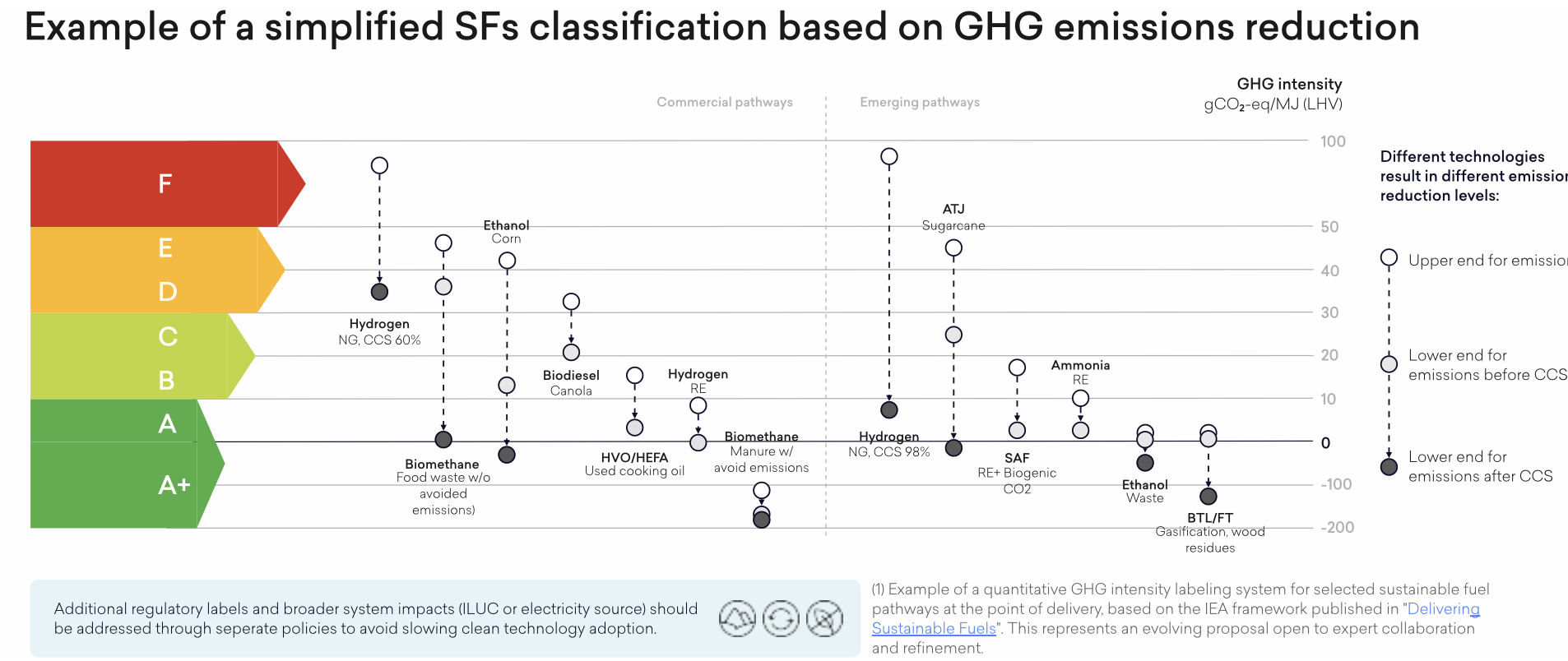The recent International Energy Agency (IEA) report Delivering Sustainable Fuels – Pathways to 2035 offers both a reality check and a call to action. It shows that if existing and announced policies are implemented, increasing the global use of sustainable fuels fourfold by 2035 is ambitious yet achievable. Policy, it concludes, holds the key.
That message could not be more timely. Sustainable fuels, such as biofuels and synthetic fuels, are an essential component of the global energy transition, offering an immediate, scalable solution complementary to electrification. Yet despite their potential, these fuels still face regulatory barriers and fragmented standards that slow down investment and deployment.
This is why a group of companies representing the entire sustainable fuel value chain, including Repsol, BMW, Bosch, Raízen, Navantia, Técnicas Reunidas, Enerkem, Technip Energies, Air Liquide, and Iveco, have come together to endorse a Manifesto to unlock the potential of sustainable fuels, calling on Brazil’s COP30 Presidency and the governments participating in the Conference of the Parties to turn ambition into action.
As signatories, we call for three essential steps:
-
Integrate sustainable fuels into the energy transition, recognizing them in regulation as an immediate decarbonization solution, maintaining technological neutrality to allow the most effective routes to net zero.
-
Simplify and standardize sustainable fuel classifications, using a greenhouse gas (GHG) intensity-based system aligned with international frameworks. This will support cooperation and attract global investment.
-
Ensure transparent sustainability through strong, science-based standards and certifications managed by independent accredited bodies, to guarantee environmental integrity and credibility.
The IEA’s findings echo our message: sustainable fuels complement electrification and energy efficiency, enhance energy security, and can drive rural development and job creation, especially in emerging economies. But unlocking their full potential requires a shared global vision and targeted policy support with a technology-open approach.
A European imperative
The principle is universal, but the European Union faces a particularly urgent challenge. Producing renewable fuels exclusively for aviation and maritime sectors, as foreseen by existing EU regulations, is economically unfeasible without economies of scale. The absence of a viable market in road transport prevents cost optimization and raises the financial risk of investment in aviation and maritime fuels. In this context, the road transport sector can serve as a lead market to provide the necessary scale for the growth of sustainable aviation fuels and marine fuels, while accelerating its own decarbonization alongside electrification.
 The absence of a viable market in road transport prevents cost optimization and raises the financial risk of investment in aviation and maritime fuels
The absence of a viable market in road transport prevents cost optimization and raises the financial risk of investment in aviation and maritime fuels
This is particularly pressing amid the ongoing discussions on revising the CO2 emissions standards regulation for cars and vans, that in its current form entails a ban on combustion engines by 2035. Despite their potential to reduce emissions, renewable fuels are being sidelined in the conversation on road transport. Regulatory barriers prevent these fuels from competing fairly alongside other emissions reduction technologies.
As the EU shapes its industrial and road transport decarbonization agenda through initiatives like the Clean Industrial Deal and the upcoming revision of CO₂ standards for cars and vans regulation, it must ensure that renewable fuels are allowed to deliver on their potential, aligned with the Draghi report recommendations. Electrification is essential in road transport decarbonization, but relying on it alone risks excluding proven solutions that are already reducing emissions today.
A technology-neutral framework would accelerate decarbonization, foster innovation, and strengthen Europe’s industrial competitiveness and strategic autonomy. As the IEA notes, governments should “establish roadmaps, targets and support policies tailored to regional contexts, while keeping a technology-open approach.” Europe should follow this principle.
At Repsol, we are showing that this transition is not just possible: it is happening. In 2024, we put in operation the first large-scale 100% renewable fuels plant on the Iberian Peninsula in Cartagena, Spain. The Cartagena plant has the capacity to produce 250,000 tons of renewable fuels per year, manufactured from 300,000 tons of organic waste, which are transformed into high value-added products.
Building on this success, Repsol is currently constructing a second 100% renewable fuels plant in Spain that will be operational in early 2026 at the Puertollano Industrial Complex (Ciudad Real). This facility will be dedicated exclusively to the production of renewable diesel from waste, with the aim of reaching production of 200,000 tons annually.
Across the Iberian Peninsula, more than 1,300 of our service stations already supply 100% renewable diesel, fully compatible with existing vehicles and infrastructure. Repsol is also a pioneer in industrial-scale production of gasoline of 100% renewable origin, recently expanding its renewable fuel offering to also include this product at 30 service stations by year-end. This means European drivers can reduce their carbon footprint today, without waiting for new technologies or costly upgrades.
Simplifying the path forward
The absence of global alignment and the patchwork of inconsistent rules create delays, uncertainty, and unnecessary costs. A common, transparent classification system that measures lifecycle emissions, from feedstock to end use, would accelerate deployment, ensure fair competition among technologies, and provide regulatory clarity. This approach would let the market, guided by clear sustainability criteria, determine which solutions best serve each sector and region.
The following presents a simplified classification of sustainable fuels developed by the IEA, based on their potential to reduce greenhouse gas emissions:

A moment for global leadership
Brazil’s COP30 is an opportunity to unite countries, industries and institutions around a Global Pledge for Sustainable Fuels, a commitment to accelerate the deployment of these solutions, strengthen international cooperation, and establish common sustainability principles. Such a pledge would turn today’s fragmented efforts into a coordinated push for investment, innovation, and inclusion across all regions.
The pathway is clear, the technology exists, and the industrial base is ready. What is needed now is the political will to make sustainable fuels a cornerstone of the global energy transition.
Find out about the global call to action for unlocking the potential of sustainable fuels
Sign up to The Parliament's weekly newsletter
Every Friday our editorial team goes behind the headlines to offer insight and analysis on the key stories driving the EU agenda. Subscribe for free here.